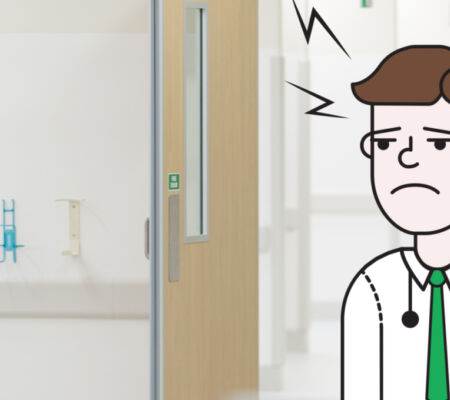
In today's environment, it’s important to understand the role stress plays in our lives and how we can navigate this to create a healthier balance.
Back to Articles & Resources View all Healthcare & Life Sciences content
Healthcare roles are stressful. If something doesn’t go as expected and a patient’s condition worsens, then their life may be at risk. The roles can also become dangerous through infectious disease and volatile situations that are encountered in the working environment. Then there’s the psychological impact of seeing traumatic events, working closely with people that are going through significant life changes and seeing death on a regular basis. All of this is a lot to deal with, which is why people in this profession are at higher risk of elevated states of depression and job related anxiety. In today’s environment, with healthcare worker shortages, and the constant spotlight that the public is placing on these professionals, it’s important to understand the role stress plays in our lives and how we can navigate this to create a healthier balance.
Stress is our body’s natural way of reacting to a potentially harmful situation. This works by the hypothalamus, a tiny region in the brain, triggering a reaction inside of us that makes our adrenaline glands begin to work which releases a surge of hormones, primarily being adrenaline and cortisol. This makes us alert through boosting our energy supplies, helping to repair tissues faster and prevents functions that are nonessential in a fight or flight situation. Once the perceived threat leaves, then these hormonal levels should return to normal. However, if they don’t, then this process remains in fight or flight mode. If this continues long term, then this can disrupt the body’s natural processes and increases the risks of mental health issues, cardiovascular disease, eating disorders, menstrual problems, sexual dysfunction and gastrointestinal problems.
Stress impacts on many aspects of our life, such as emotions, behaviors, cognitive functioning and our physical health. Like so many other conditions that people have, stress can present in different ways and cause a range of symptoms that help us to understand that the things happening in our lives may be effecting us. Emotional symptoms tend to see us become easily agitated, frustrated and moody. We can feel overwhelmed which makes it harder to rest and relax which feeds into feelings of low self-esteem and we may begin to avoid people. Physical symptoms may be more obvious, such as lower energy levels, headaches, stomach problems, sore muscles, frequently getting sick, nervousness and shaking or grinding teeth. Inside our heads we may struggle to focus, have uncontrollable racing thoughts, become disorganized and forgetful and see the world in a negative view. Or there may be behavioral shifts with changes in appetite, procrastination and increased use of alcohol and/or drugs.
Once we identify that perhaps we are under stress and that the feelings we are having are taking a negative toll on our lives, we can then implement some really simple ways to reduce the effects of stress that can help work towards normality again. Often work life balance is a major issue, so finding activities that take your mind away from work and ensure that you are not taking your work home with you is a great way to start to separate the two lives that you have. Adding in regular exercise helps to increase blood circulation which can positively affect your mood, flushing out the stress hormones and is known to ease the effects of depression also. Ensuring you are eating properly with a balanced diet can give you more energy which can improve your mood. Getting quality sleep helps the body to cope with stress, improves concentration, regulates your mood and sharpens judgement. Talking with friends and loved ones’ face to face, gives you a chance to express how you are feeling, while feeling supported by those you can trust. And if you are finding that nothing you try is working, then it might be time to talk with a professional. Reaching out for help is not a sign of weakness at all, but quite the opposite. The people in these professions are highly skilled and are able to connect with you to help you understand in a way that perhaps wasn’t happening before.
If you’re working in healthcare, be proud of the work you are doing, because each day you are making a real difference in the lives of people, making communities safer and saving lives. Stress is normal, and something that everyone lives with. But it’s important to be able to recognize it, understand when it is happening, and look for ways to ensure that it is not negatively impacting your life.
Works Cited
CDC. (2008, July). Exposure to Stress: Occupational Hazards in Hospitals. Retrieved from Centers for Disease Control and Prevention: https://www.cdc.gov/niosh/docs/2008-136/default.html
Cuncic, A. (2020, September 19). An Overview of Work Anxiety. Retrieved from Verywell Mind: https://www.verywellmind.com/work-anxiety-4692762
Koinis et al. (2015, April 13). The Impact of Healthcare Workers Job Environment on Their Mental-emotional Health. Coping Strategies: The Case of a Local General Hospital. Retrieved from National Center for Biotechnology Information: https://www.ncbi.nlm.nih.gov/pmc/articles/PMC4768542
Mayo Clinic. (2019, March 19). Stress Management. Retrieved from Mayo Clinic: https://www.mayoclinic.org/healthy-lifestyle/stress-management/in-depth/stress/art-20046037
Stoll, M. (n.d.). 10 Simple Ways to Cope with Stress. Retrieved from Sutter Health: https://www.sutterhealth.org/health/mind-body/10-simple-ways-to-cope-with-stress
Web MD. (n.d.). Stress Symptoms. Retrieved from Web MD: https://www.webmd.com/balance/stress-management/stress-symptoms-effects_of-stress-on-the-body
